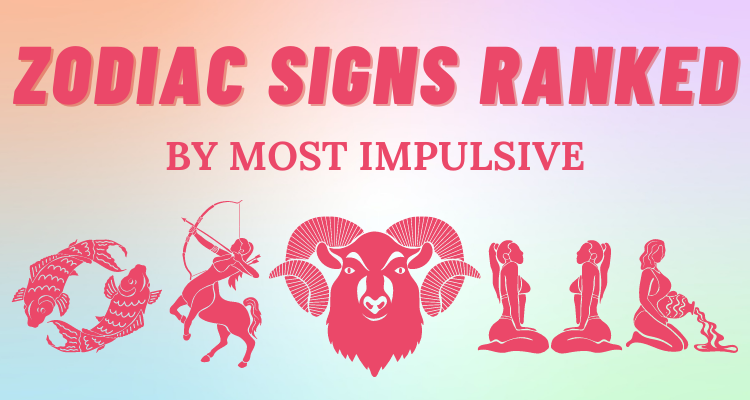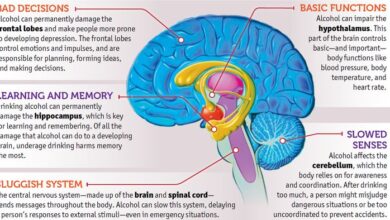
Why Hunger and Good Decision Making Dont Mix
Why hunger and good decision making dont mix – Why Hunger and Good Decision Making Don’t Mix – We all know the feeling: your stomach rumbles, your head feels fuzzy, and your patience wears thin. You’re hungry, and it’s not just a matter of a grumbling belly. Hunger, it turns out, can have a significant impact on our ability to think clearly, make sound judgments, and control our impulses.
This is because hunger triggers a complex cascade of physiological and psychological changes that can significantly impair our cognitive function and decision-making abilities.
This blog delves into the fascinating relationship between hunger and decision-making, exploring the scientific basis for why our brains struggle to function optimally when our stomachs are empty. We’ll uncover how hunger affects our cognitive processes, emotional states, and self-control, ultimately influencing the choices we make.
We’ll also explore practical tips for managing hunger and improving decision-making, as well as the broader societal implications of food insecurity.
The Physiological Impact of Hunger

Imagine a day where your mind feels foggy, your focus is wavering, and even the simplest decisions feel overwhelming. This is the reality of hunger’s impact on our cognitive function. When our bodies are deprived of food, it triggers a cascade of physiological changes that directly affect our ability to think clearly and make sound judgments.
Hunger’s Influence on Cognitive Function
Hunger doesn’t just make us grumpy; it actually impairs our cognitive abilities. When our stomachs rumble, our brains are working overtime to prioritize energy conservation, leading to decreased cognitive function. This is due to the interplay of various brain regions and neurotransmitters.
Brain Regions and Neurotransmitters Involved in Hunger
The hypothalamus, a tiny region deep within the brain, plays a crucial role in regulating hunger and satiety. It receives signals from various parts of the body, including the stomach and intestines, about nutrient levels and energy stores. When these signals indicate low energy levels, the hypothalamus triggers the release of neurotransmitters like neuropeptide Y (NPY) and ghrelin.
These hormones stimulate appetite and promote food-seeking behavior.
The hypothalamus, a tiny region deep within the brain, plays a crucial role in regulating hunger and satiety.
Conversely, when we eat, the hypothalamus receives signals that our energy stores are replenished, leading to the release of hormones like leptin and cholecystokinin (CCK) that suppress appetite. These hormones help regulate our energy balance, ensuring we don’t overeat.However, when we are hungry, the balance shifts.
We’ve all been there – that rumbling stomach that makes even the simplest decisions feel like a monumental task. When hunger strikes, our willpower crumbles, and healthy choices become a distant memory. That’s why I always try to keep a stash of quick and satisfying meals on hand, like the ones featured in this awesome list of 9 hearty winter soups under 360 calories.
These soups are packed with flavor and nutrients, so I can fuel my body without sacrificing my sanity (or my diet!). After all, a well-nourished brain is a much better decision-maker than a hungry one.
The increased levels of NPY and ghrelin can interfere with the normal functioning of other brain regions involved in cognitive processes, such as the prefrontal cortex, which is responsible for executive functions like decision-making, planning, and impulse control.
Examples of Studies Demonstrating the Correlation Between Hunger and Impaired Decision-Making
Numerous studies have shown the correlation between hunger and impaired decision-making. For example, a study published in the journal “Nature” found that participants who were deprived of food for 12 hours were more likely to make impulsive choices and engage in risky behavior.
They were also more likely to choose immediate rewards over long-term benefits, even when the long-term benefits were significantly greater.
A study published in the journal “Nature” found that participants who were deprived of food for 12 hours were more likely to make impulsive choices and engage in risky behavior.
Another study, published in the journal “Psychological Science,” found that hunger can lead to increased aggression and hostility. Participants who were hungry were more likely to report feeling angry and frustrated, and they were more likely to respond aggressively to provocations.
Emotional and Psychological Effects of Hunger

Hunger doesn’t just affect your body; it can significantly impact your emotional and psychological well-being, influencing your mood, behavior, and decision-making abilities. When your body is deprived of essential nutrients, it triggers a cascade of hormonal and chemical changes that can lead to feelings of irritability, anxiety, and impulsivity.
Impact on Emotional States
Hunger can have a profound impact on your emotional state, leading to increased irritability, anxiety, and impulsivity. This is because when you’re hungry, your body releases stress hormones like cortisol and adrenaline, which can make you feel more agitated and reactive.
We’ve all been there – ravenous hunger making even the most sensible choices seem like bad ideas. That’s why I’ve found it’s crucial to have a plan in place for healthy eating, especially when those cravings hit. One way I’ve found to combat impulsive choices is to keep my fridge stocked with fresh, vibrant vegetables.
If you’re looking for some inspiration, check out this fantastic article on 5 ways to up your vegetable game. With a little planning and a few delicious veggie options on hand, you can avoid those impulsive, hunger-fueled decisions and make healthier choices that benefit your body and mind.
“Hunger can make even the most patient person feel like they’re about to snap,”
says Dr. Sarah Johnson, a psychologist specializing in the effects of hunger on mental health.
How Hunger Influences Decision-Making
These emotional changes brought on by hunger can significantly affect your decision-making abilities. When you’re feeling irritable and anxious, you’re more likely to make impulsive decisions without fully considering the consequences. For example, you might be more prone to making unhealthy food choices, engaging in risky behaviors, or lashing out at others.
Exacerbation of Mental Health Conditions
Hunger can also exacerbate existing mental health conditions. For example, individuals with anxiety disorders may experience heightened anxiety symptoms when they’re hungry, while those with depression may find their mood worsens. This is because hunger can disrupt the delicate balance of neurotransmitters in the brain, which are essential for regulating mood and behavior.
We’ve all been there – that rumbling in your stomach that makes even the simplest decision feel like a monumental task. When hunger strikes, our willpower takes a backseat, and suddenly that greasy pizza slice looks incredibly appealing. But fear not, pizza lovers! There are ways to satisfy your cravings without sacrificing your health goals.
Check out this list of 11 healthy pizzas under 400 calories for a delicious and guilt-free indulgence. Next time you’re feeling famished, remember that a little planning can go a long way in making healthier choices, even when your stomach is screaming for a quick fix.
“It’s crucial to address hunger as a potential factor when managing mental health conditions,”
emphasizes Dr. Johnson. “Ensuring adequate nutrition can play a significant role in improving overall mental well-being.”
The Impact of Hunger on Self-Control
Imagine a scenario: You’re at the grocery store, your stomach is rumbling, and the bakery section is filled with irresistible pastries. You know you shouldn’t indulge, but the temptation is overwhelming. This is a common experience, and it highlights the powerful link between hunger and reduced self-control.
When we’re hungry, our brains shift into survival mode, prioritizing immediate gratification over long-term goals. This can lead to impulsive decisions and a weakened ability to resist temptations, even if we know those choices are ultimately detrimental to our health and well-being.
The Influence of Hunger on Resisting Temptations and Delaying Gratification
Hunger significantly affects our capacity to resist temptations and delay gratification. When our bodies are deprived of energy, the prefrontal cortex, responsible for executive functions like planning and decision-making, becomes less efficient. This makes it harder to weigh the consequences of our actions and resist immediate rewards.
For example, research has shown that people who are hungry are more likely to choose immediate rewards, such as a sugary snack, over long-term benefits, like a healthy meal. This is because the reward system in the brain, which is activated by food, becomes more sensitive when we’re hungry, making it harder to resist the urge to eat.
Examples of How Hunger Can Lead to Impulsive Behaviors and Unhealthy Choices
Hunger can lead to a range of impulsive behaviors and unhealthy choices. Here are a few examples:
- Overeating:When we’re hungry, we may eat more than we normally would, even if the food is not particularly appealing. This can lead to weight gain and other health problems.
- Making poor food choices:Hunger can make us more likely to choose unhealthy, processed foods over nutritious options. This is because these foods are often high in sugar, fat, and salt, which provide a quick burst of energy.
- Increased irritability and aggression:Hunger can make us more irritable and aggressive, increasing the likelihood of conflicts and arguments. This is because hunger can disrupt our mood and make us more reactive to stress.
- Reduced cognitive function:Hunger can impair our ability to think clearly and make sound decisions. This can lead to mistakes at work, school, or in other areas of life.
Hunger and Decision-Making in Different Contexts: Why Hunger And Good Decision Making Dont Mix
Hunger’s impact on decision-making isn’t confined to the realm of simple choices like snacking. It can significantly influence our judgment in various complex situations, impacting everything from financial decisions to social interactions and health choices. Understanding how hunger affects decision-making in these different contexts is crucial for making informed choices and mitigating potential negative consequences.
Financial Decisions
Hunger can lead to impulsive and irrational financial decisions, particularly in situations involving potential rewards and losses. Studies have shown that when individuals are hungry, they are more likely to take risks, potentially leading to poor financial choices.
- For example, hungry individuals may be more likely to gamble or invest in risky ventures, even when the odds are stacked against them.
- This increased risk tolerance can be attributed to the fact that hunger triggers a state of heightened arousal and impulsivity, making individuals more susceptible to immediate gratification and less concerned about long-term consequences.
Social Interactions
Hunger can also affect social interactions, leading to increased irritability, aggression, and decreased empathy.
- When hungry, individuals may be more likely to react negatively to social cues and engage in conflict.
- For instance, a hungry individual may be more likely to snap at a coworker or be less patient with a friend’s request.
- Hunger can also impair social judgment, making individuals less able to read social cues and respond appropriately.
Health Choices
Hunger can negatively impact health choices, leading to increased cravings for unhealthy foods and decreased motivation to engage in healthy behaviors.
- When hungry, individuals may be more likely to choose calorie-dense, processed foods over healthier options, even when they are aware of the potential health risks.
- This is because hunger triggers a physiological drive to seek out and consume food, regardless of its nutritional value.
- Hunger can also make it harder to resist temptations and stick to healthy eating plans.
Strategies for Mitigating the Negative Effects of Hunger
To minimize the negative impact of hunger on decision-making, several strategies can be employed:
- Plan ahead:Scheduling meals and snacks throughout the day can help maintain stable blood sugar levels and prevent extreme hunger.
- Carry healthy snacks:Having readily available healthy snacks can help prevent impulsive food choices when hunger strikes.
- Prioritize sleep:Adequate sleep is crucial for maintaining stable blood sugar levels and regulating hunger hormones.
- Stay hydrated:Dehydration can sometimes be mistaken for hunger, so ensuring adequate hydration is essential.
- Be mindful of hunger cues:Paying attention to hunger cues and eating when truly hungry can help prevent overeating and impulsive food choices.
Practical Implications for Individuals and Society
Understanding the impact of hunger on decision-making has profound implications for individuals and society. This knowledge empowers us to make informed choices about our own well-being and to develop strategies for addressing societal challenges related to food insecurity.
Practical Tips for Individuals, Why hunger and good decision making dont mix
The following table presents practical tips for individuals to manage hunger and improve their decision-making abilities:
| Tip | Description |
|---|---|
| Plan your meals and snacks | Regularly eating balanced meals and snacks helps maintain stable blood sugar levels, reducing hunger pangs and improving focus. |
| Choose nutrient-rich foods | Opting for foods high in protein, fiber, and complex carbohydrates provides sustained energy and helps prevent energy crashes. |
| Stay hydrated | Dehydration can mimic hunger, so ensure you’re drinking enough water throughout the day. |
| Manage stress | Stress can increase cortisol levels, leading to cravings and poor decision-making. Engage in stress-reducing activities like exercise or meditation. |
| Get enough sleep | Sleep deprivation can impair cognitive function and increase hunger. Aim for 7-8 hours of quality sleep each night. |
Implications for Societal Issues
Hunger has far-reaching implications for society, particularly in areas such as poverty, food insecurity, and education.
Poverty and Food Insecurity
Hunger is a significant consequence of poverty. Individuals living in poverty often lack access to affordable, nutritious food, leading to chronic hunger and malnutrition. This can have devastating effects on their physical and mental health, hindering their ability to work, learn, and contribute to society.
Education
Hunger can severely impact a child’s ability to learn and succeed in school. Studies have shown that hungry children often experience difficulty concentrating, remembering information, and solving problems. This can lead to lower academic performance, increased absenteeism, and ultimately, a cycle of poverty.
Initiatives and Programs
Recognizing the detrimental effects of hunger on individuals and society, numerous initiatives and programs are being implemented worldwide to address this issue:
Food Banks and Food Pantries
Food banks and pantries provide emergency food assistance to individuals and families struggling with food insecurity. They collect and distribute donated food to those in need, ensuring access to basic nutritional needs.
School Lunch Programs
School lunch programs aim to provide nutritious meals to students, particularly those from low-income families. These programs help combat hunger and ensure that children have the energy and focus needed to succeed in school.
Community Gardens
Community gardens offer opportunities for individuals to grow their own food, promoting healthy eating habits and increasing access to fresh produce. They also foster a sense of community and empowerment.
Government Assistance Programs
Government assistance programs, such as SNAP (Supplemental Nutrition Assistance Program) in the United States, provide financial assistance to low-income families to purchase food. These programs help ensure food security and alleviate the burden of hunger.
Summary

In a world where we’re constantly bombarded with decisions, understanding how hunger impacts our choices is crucial. By recognizing the powerful influence of hunger on our cognitive abilities, we can take proactive steps to manage it effectively. Whether it’s scheduling regular meals, keeping healthy snacks on hand, or addressing food insecurity on a larger scale, understanding the link between hunger and decision-making empowers us to make better choices for ourselves and our communities.






